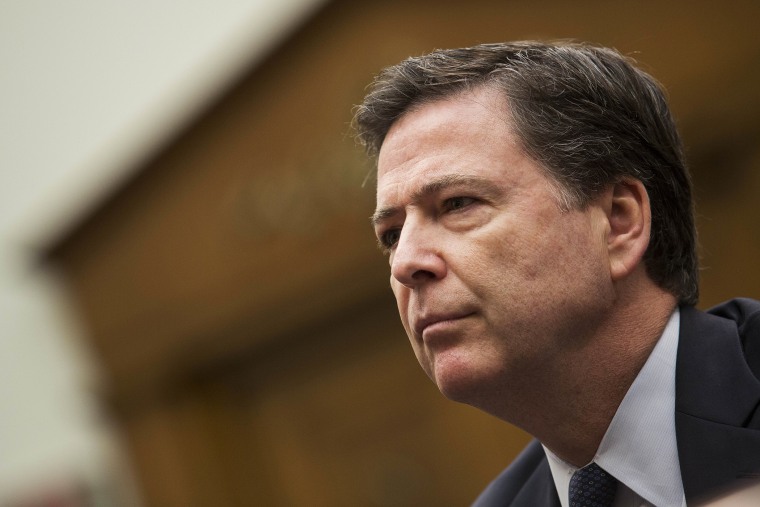Some or all of the emails in question may be duplicative -- there's a "
high likelihood" FBI officials have already read them -- and Comey's controversial letter was sent before the bureau had any idea about the messages' relevance to Clinton.When it comes to the political fallout, this is a highly relevant detail: as a Yahoo News
report explained over the weekend, "Donald Trump's campaign and Republicans in Congress have suggested that the FBI director would not have written his letter unless he had been made aware of significant new emails that might justify reopening the investigation into the Clinton server." Now we know these GOP suggestions are wrong.In fact, even now, no information has emerged since Friday's developments that suggests Clinton is in any legal jeopardy at all: she's facing no new allegations, and
legal experts agree that there's no reason to believe any of these fresh details will change the FBI's decision from July.The more immediate controversy appears to deal with Comey himself and the letter that raised far more questions.The FBI director
sent a message to bureau employees on Friday, defending his willingness to "supplement the record" by notifying Congress of the additional emails. He added, however, that sending "a brief letter ... in the middle of an election season" created a "significant risk of being misunderstood."That risk was so great that the Justice Department
urged the FBI not to take this unprecedented step. Comey did it anyway.The result was
a rather dramatic break with how federal law enforcement
generally operates, which in turn has created all kinds of questions about Comey, a Republican appointed by President Obama, his motivations, his sense of timing, and his willingness to intervene in a presidential campaign so close to Election Day.Two former deputy attorneys general -- Democrat Jamie Gorelick and Republican Larry Thompson -- wrote
a rather brutal piece in the
Washington Post over the weekend, describing Comey's actions as "antithetical to the interests of justice, putting a thumb on the scale of this election and damaging our democracy."They were
hardly alone in raising concerns: some former federal prosecutors were
at a loss to explain or defend the FBI director's decision. There's nothing especially partisan about any of this: Comey found himself under fire
from "current and former officials at the F.B.I. and the Justice Department, including Republicans."Former Attorney General Eric Holder has
a piece of his own in the
Washington Post today, praising Comey as "a man of integrity and honor," who in this case "committed a serious error with potentially severe implications."On a related note, Holder also joined nearly 100 former federal prosecutors and high-ranking Justice Department officials -- from Democratic and Republican administrations -- who
signed onto a joint letter expressing serious concerns about Comey's conduct.Making matters slightly worse, some have even raised questions about Comey misusing his office in ways that ran afoul of the law. The Hatch Act prohibits government officials from using their offices to influence elections, and over the weekend, Richard Painter, George W. Bush's chief White House ethics lawyer,
filed a complaint against Comey's office with the Office of Special Counsel and the Office of Government Ethics. Senate Minority Leader Harry Reid (D-Nev.)
raised the same concern in a letter yesterday to the FBI director directly.While these allegations are unlikely to stick -- the Hatch Act, which Karl Rove
famously ran afoul of, sets a high legal hurdle -- they're emblematic of a
spectacular mess Comey appears to have created for dubious reasons. By
ignoring institutional norms and giving the appearance of intervening in the election, the FBI director is under fire from Democrats and Republicans, while creating an "
internal feud" within the bureau itself.Finally, as the
New York Times reported, there are also questions surrounding the selective application of Comey's principles, a point Reid also raised in his letter.
Watch this space.
